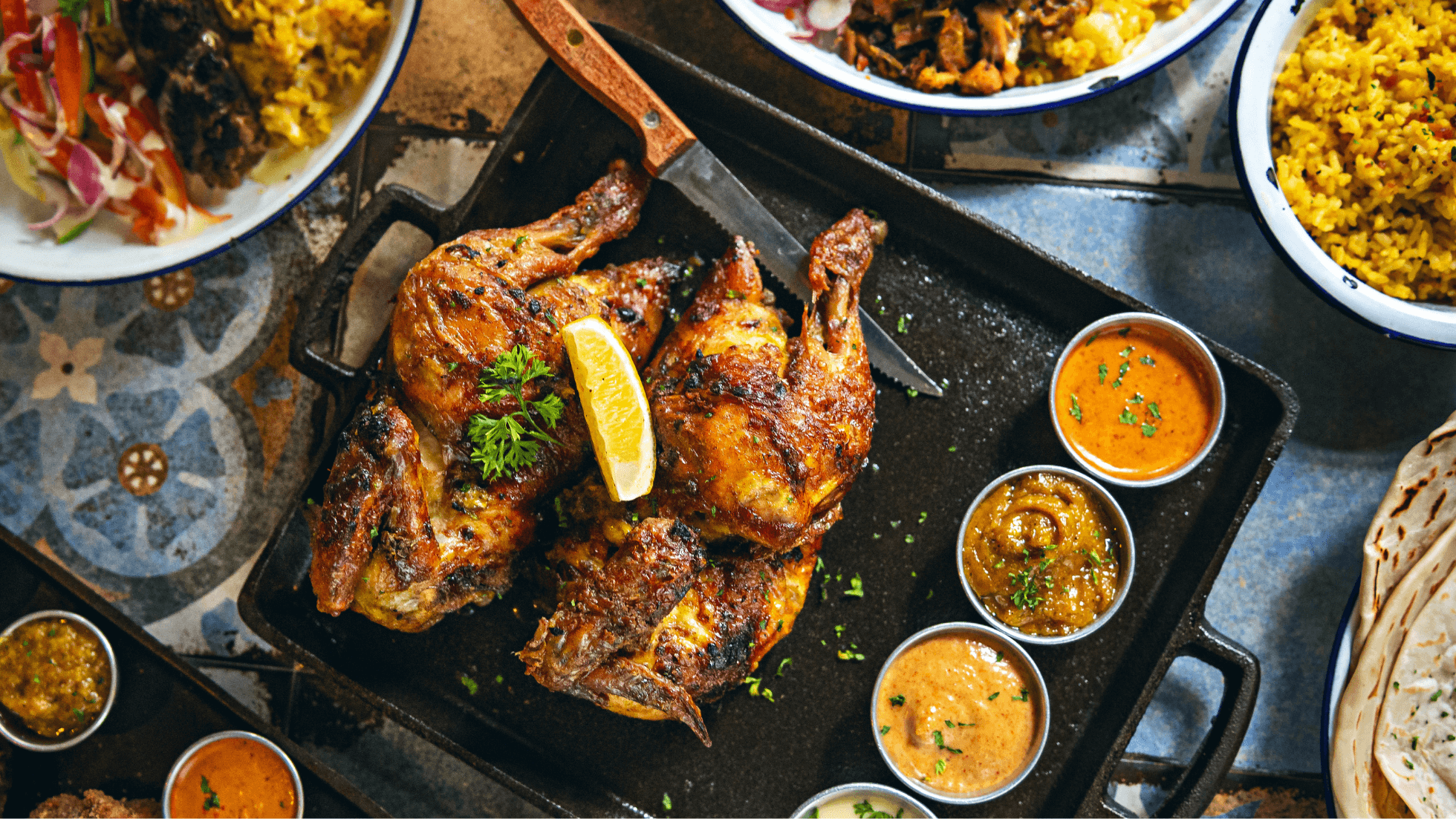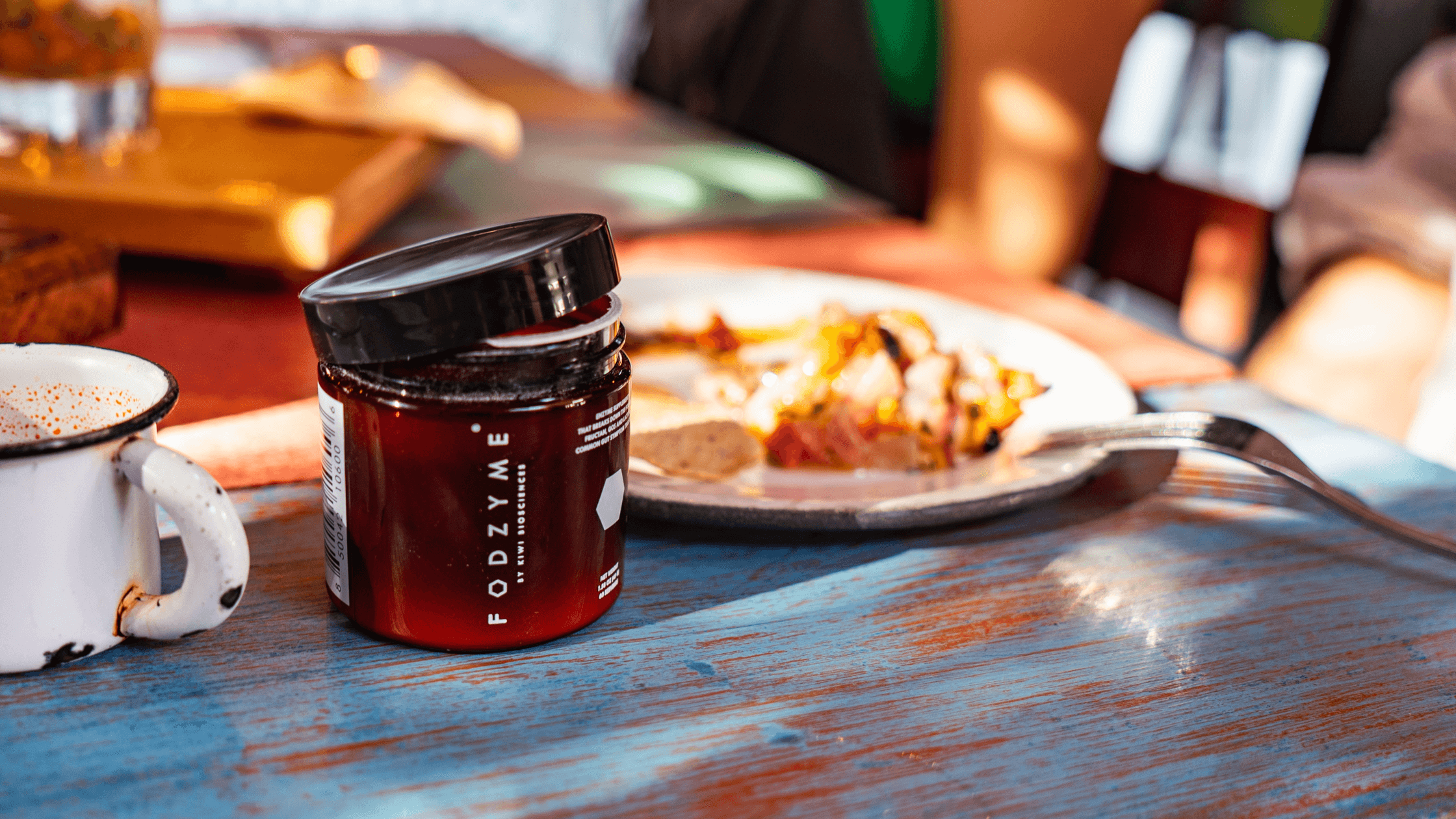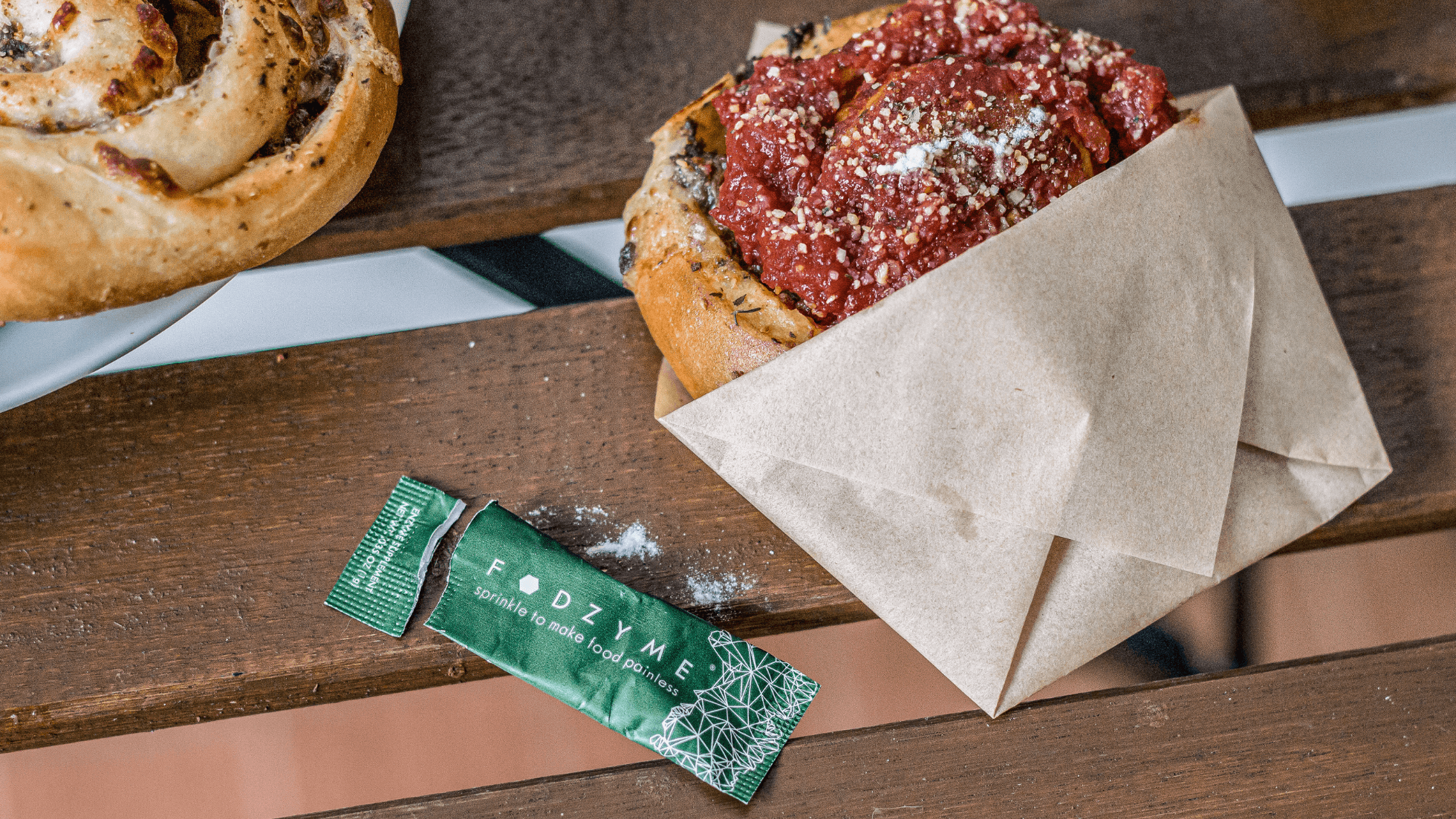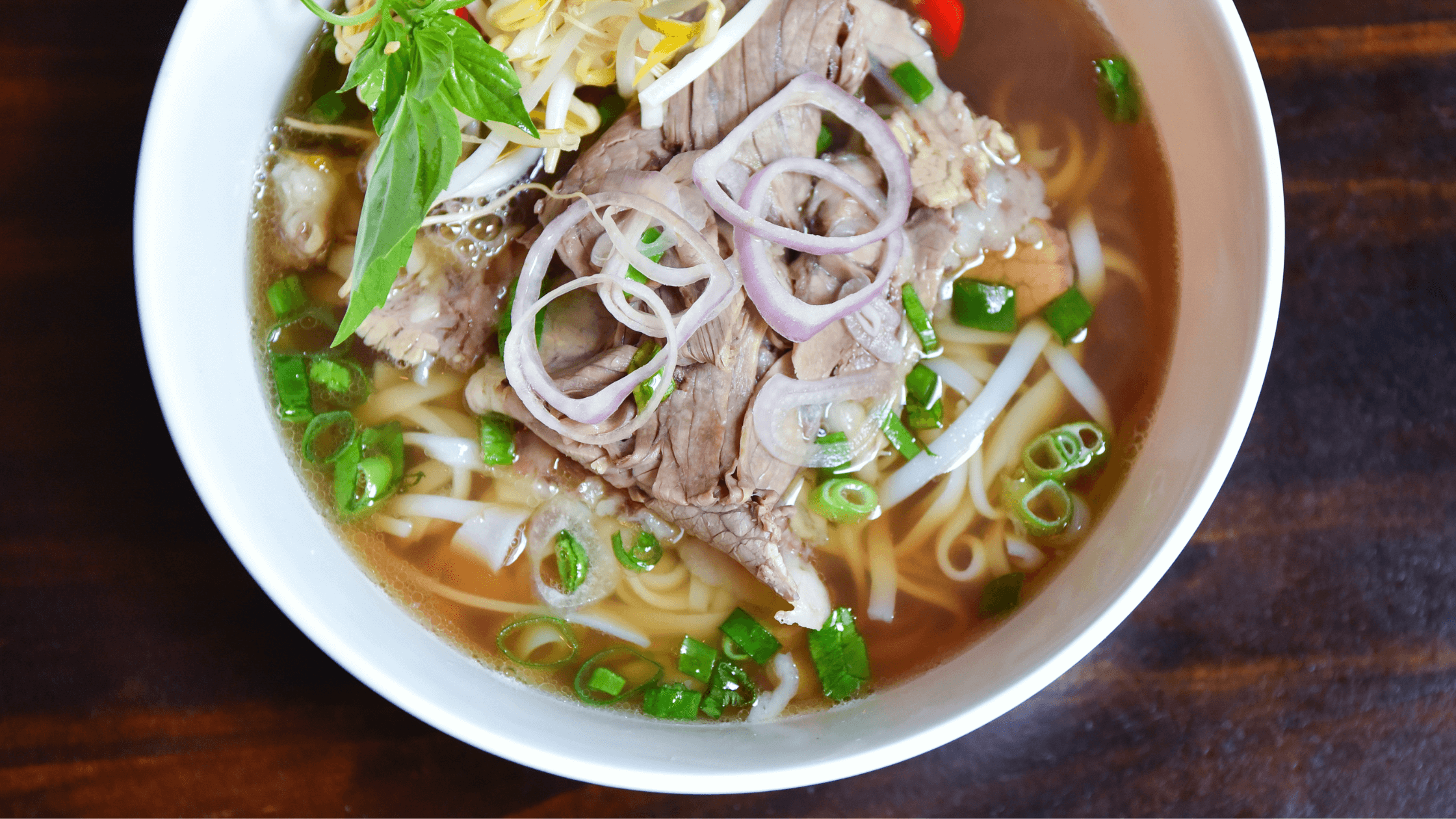Bloating, gas, and digestive discomfort like stomach pain can be seriously frustrating and make it challenging to go about your day comfortably. Bloating is very common, affecting between 16% and 31% of people in the United States.
While occasional bloating is normal, persistent digestive discomfort could indicate food intolerances, gut imbalances, or digestive disorders like irritable bowel syndrome (IBS). Fortunately, small diet and lifestyle changes can often make a big difference in relieving intestinal gas and bloating.
From identifying trigger foods to supporting digestion with mindful eating to strategically using digestive enzymes, there are many ways to relieve gas and bloating naturally. In this article, we'll explore why gas and bloating happen, the science behind gut relief, and when to see a doctor.
Why Do Bloating and Gas Happen?
Before diving into how to get rid of gas and bloating, it's important to understand what bloating actually is. According to the American College of Gastroenterology, abdominal bloating simply refers to a feeling of fullness in the upper abdomen. It is often accompanied by distention, or the visible expansion of the abdomen.
Gas and bloating can happen for various reasons, including food intolerances, underlying medical conditions, eating too quickly or intense exercise. Eating too quickly can also be associated with burping a lot after meals. Understanding the root causes of your gas and bloating can help you choose the right strategy for improving your digestion and getting relief from your symptoms, whether your looking for ways to stop gas at night or during the day.

Common causes of gas and bloating include:
- FODMAP intolerance: Certain foods, like garlic, beans, dairy, wheat, and sugar-free candies, contain fermentable carbohydrates called FODMAPs (Fermentable Oligosaccharides, Disaccharides, Monosaccharides, and Polyols) that can be difficult to digest, especially for people with IBS. Eating these foods when you have food sensitivities (for example, if you're lactose intolerant) can lead to more gas and bloating, as well as changes to your bowel habits like diarrhea and constipation.
- Swallowing air: Eating too quickly, sucking on hard candy, drinking carbonated beverages,, and chewing gum can cause extra air to enter your digestive system. When you swallow air, it can increase levels of intestinal gas and cause bloating symptoms for some people.
- SIBO: An overgrowth of bacteria in the small intestine, often seen in conditions like Small Intestinal Bacterial Overgrowth (SIBO), can lead to excessive gas production.
- Constipation: When waste moves slowly through the digestive system, it can cause bloating and discomfort due to trapped gas produced when your gut bacteria ferment the stool. Not eating enough fiber and not drinking enough fluids are two common causes of constipation.
- High-fat foods: Fatty foods like fries take longer for your body to digest, which can lead to more gas and bloating. Many high-fat fast foods also contain a lot of sodium, which can cause your body to retain fluid and may contribute to a feeling of bloating. Try eating smaller portions of these foods to see if it improves your symptoms.
- Increasing your fiber intake too quickly: If you're not used to eating many high-fiber foods, they can cause intestinal gas and bloating. To avoid the digestive discomfort that can come along with increasing your fiber intake, increase it gradually (by 2 to 3 grams of fiber per day) and ensure you're drinking enough fluids to help the fiber move through your digestive tract.
- Chronic stress and poor sleep: Stress and not getting enough high-quality sleep can alter how your digestive system works. You may notice bloating and gas worsen when you're stressed or haven't slept well the night before.
How to Get Rid of Bloating and Gas Naturally
There are many ways to get rid of bloating and gas naturally, from dietary adjustments to digestive enzymes to how you eat.

Adjusting Your Diet to Reduce Bloating and Gas
Adjusting your diet is one of the most effective ways to reduce bloating and gas. Many cases of gas and bloating stem from foods high in FODMAPs — a group of fermentable carbohydrates that can be difficult for some people to digest.
A temporary low FODMAP diet can help identify food triggers and improve digestive symptoms for people with IBS. Common high FODMAP foods that may contribute to gas and bloating include:
- Vegetables: Broccoli, Brussels sprouts, cauliflower, onions, garlic, and asparagus.
- Fruits: Apples, pears, peaches, watermelon, blackberries, and cherries.
- Dairy products: Milk, certain types of cheese, and yogurt.
- Legumes: Black beans, kidney beans, navy beans, and cannellini beans.
- Grains: Wheat, rye, and barley.
- Nuts and seeds: Pistachios and cashews.
If you experience frequent gas and bloating, a temporary low FODMAP diet can help you pinpoint specific food triggers. Gradually reintroducing high FODMAP foods after the elimination phase can help you determine which foods your body tolerates well, enabling you to personalize your nutrition plan for better digestion and long-term gut health.
The Power of Digestive Enzymes
If certain foods — like dairy, legumes, wheat, onions, and garlic — cause gas and bloating, over-the-counter medications or digestive enzymes can relieve your symptoms.
Here are three targeted digestive enzymes that can improve gas and bloating:
- Lactase: Helps break down the lactose found in dairy products.
- Alpha-galactosidase: Helps break down the galacto-oligosaccharides (GOS) found in legumes, certain nuts, and certain vegetables.
- Fructan hydrolase: Helps break down the fructans found in foods like wheat, onion, and garlic.
FODZYME is a unique, targeted enzyme supplement that contains digestive enzymes for FODMAPs. It breaks down FODMAPs in real time, helping you enjoy a wider variety of foods with less digestive discomfort.
Shop FODZYME now to support easier digestion and more food freedom.

Lifestyle Habits That Support Healthy Digestion
Beyond diet, several simple lifestyle and nutrition habits can make a big difference in reducing gas and bloating after eating. Try incorporating these home remedies into your daily routine:
- Chew well: Digestion starts in the mouth! Chewing your food thoroughly helps break it down before reaching your stomach, small intestine and colon, which can improve overall digestion and may help reduce gas and bloating.
- Eat slowly: Eating too quickly can cause you to swallow extra air, leading to gas and bloating. Take your time and practice mindful eating.
- Space out your meals: Aim to have small, frequent meals and snacks throughout the day, rather than three large meals.
- Minimize carbonated drinks: Soda, sparkling water, and other fizzy drinks introduce gas into your digestive tract, which can lead to gas and bloating. Choose still water or herbal teas instead.
- Incorporate gentle movement: Regular exercise like walking or gentle yoga can help stimulate digestion and release trapped gas. Engaging in gentle movement instead of high-intensity exercise can help reduce workout bloating.
- Manage constipation: Drink plenty of fluids and consume the recommended amount of fiber — around 25 to 40 grams daily. Too little fiber can lead to sluggish digestion, while excessive fiber intake can worsen gas and bloating. If you're increasing your fiber intake, do so gradually (by about 2 to 3 grams per day) to minimize digestive discomfort. If you're struggling to get enough fiber through your diet, fiber supplements can help.
- Avoid chewing gum or sucking on hard candy: Chewing gum and sucking on hard candy can introduce extra air into your digestive system, which can lead to gas and bloating.
Quick Remedies for Immediate Relief from Bloating and Gas
If you feel bloated or gassy, there is a range of quick and effective home remedies that can help ease your symptoms. Try these strategies when symptoms arise:
- Stretches, walking, or gentle yoga: Gentle movement can help release trapped gas. Poses like Child's Pose or Wind-Relieving Pose are particularly effective at helping you pass gas when you feel bloated.
- Peppermint oil: Taking enteric-coated peppermint oil capsules or drinking peppermint tea can relax the colon and stomach muscles and reduce gas and bloating.
- Simethicone: This over-the-counter anti-gas medication (commonly sold under the brand name Gas-X) helps break up gas bubbles in your digestive tract, making it easier to pass gas. Talk with your doctor before adding any medications to your routine.
- Deep belly breathing: Practicing slow, deep, diaphragmatic breathing can relax your gut and reduce gas and bloating caused by stress or swallowed air. It does this by activating the parasympathetic nervous system ("rest and digest" mode).
- Bowel massage: Gently massaging your abdomen (with particular attention paid to the colon area) in a circular motion can help move gas along and encourage bowel movements.
- Use heat: Applying warmth (like a hot water bottle or heating pad) to your abdomen can relax your colon and stomach muscles and relieve bloating and other symptoms like cramping.

When Should You See a Doctor?
While the occasional bloating and gas are normal, symptoms that persist or worsen despite nutrition changes and lifestyle adjustments could signal an underlying condition that requires professional evaluation and treatment.
Here are some signs that it's time to see your doctor:
- Unintended weight loss: Losing weight without trying can indicate issues like malabsorption, inflammatory disorders, or more serious conditions in the GI tract like inflammatory bowel disease (IBD), celiac disease, or colorectal cancer.
- Blood in the stool: Having bloody stools (bright red or dark, tarry stools) could indicate hemorrhoids, ulcers, or more serious conditions like colorectal cancer.
- Persistent gas and bloating: If your gas and bloating are constant and don't improve with diet and lifestyle changes, it may be a sign of IBS, SIBO, food intolerances, or other gut-related conditions that require medical attention.
Overall, if your symptoms are severe, frequent, or accompanied by pain, nausea, or changes in bowel habits, don't ignore them — seeking medical attention can help identify the root cause of your symptoms and guide the appropriate treatment.
How to Prevent Bloating and Gas for Good
Gas and bloating are common digestive complaints, but the right approach can help you minimize digestive discomfort and improve your gut health in the long term. Strategies like identifying and limiting trigger foods, eating slowly, chewing thoroughly, staying active, and using targeted digestive enzymes can all support smoother digestion and prevent gas and bloating.
If you're ready to enjoy your favorite foods without the discomfort of bloating and gas, FODZYME can help. Its unique enzyme formula breaks down common FODMAP triggers, supporting easier digestion. Get relief with FODZYME today.
